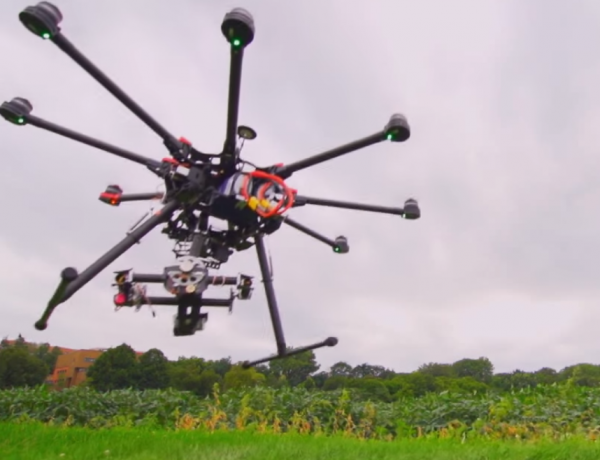BTN.com staff, February 13, 2015

During football and basketball games, BTN LiveBIG will spotlight notable examples of research, innovation and community service from around the conference. In-Game stories will provide more background on these features, and the opportunity to view the videos again.
As described in a BTN LiveBIG story last weekend, the University of Minnesota has a long history of coming up with solutions that help feed the world. And that goes beyond scholarship in agriculture to include academics in fields that range from economics to, well, bugs.
At Minnesota?s department of entomology, which is dedicated to the study of insects, professor Ian MacRae is directing a research project that could lead to higher crop yields, greater profitability for farmers and a more healthy environment.
Here?s how: MacRae and his team are employing unmanned aerial drones to scrutinize vast farm fields in order to find pockets of insect pests. Once they?re detected, insecticides can be deployed in a targeted fashion instead of sprayed indiscriminately.
?These devices will save farmers time, energy and money while decreasing pesticide inputs,? MacRae explained. ?We are minimizing chemical use and keeping our crops healthier and safer.?
For the moment, this approach is still largely in the experimental stages. MacRae and other researchers at Minnesota are currently testing the most effective ways to identify particular kinds of pests. He predicted that the technology would be dependable enough to use for commercial farming in a few years.
[btn-post-package]?Within five to 10 years, we should be able to associate particular wavelengths of light with insect populations, with weed populations and with disease populations,? MacRae explained. ?We?re going to see precision agriculture greatly assisted in a very, very short period of time.
?This cutting-edge research sometimes seems like something from a sci-fi movie,? he added. ?But ? that future is closer than you think. It?s exciting to be involved in technology that will change the way we grow our food.?
Watch the one-minute video above for more information about this important research.
By Brian Summerfield







 See what's coming up live on B1G+ every day of the season at BigTenPlus.com.
See what's coming up live on B1G+ every day of the season at BigTenPlus.com. 